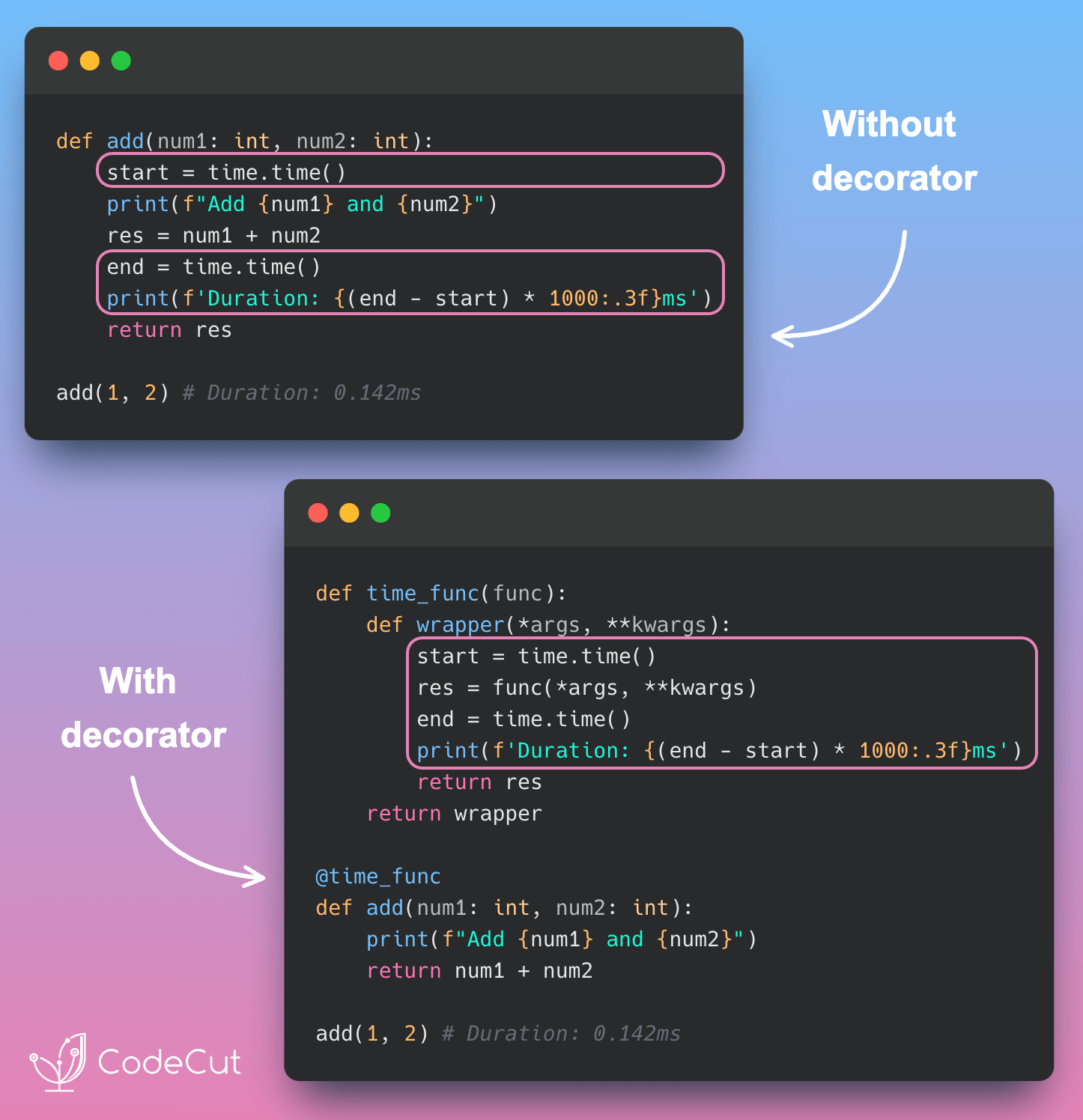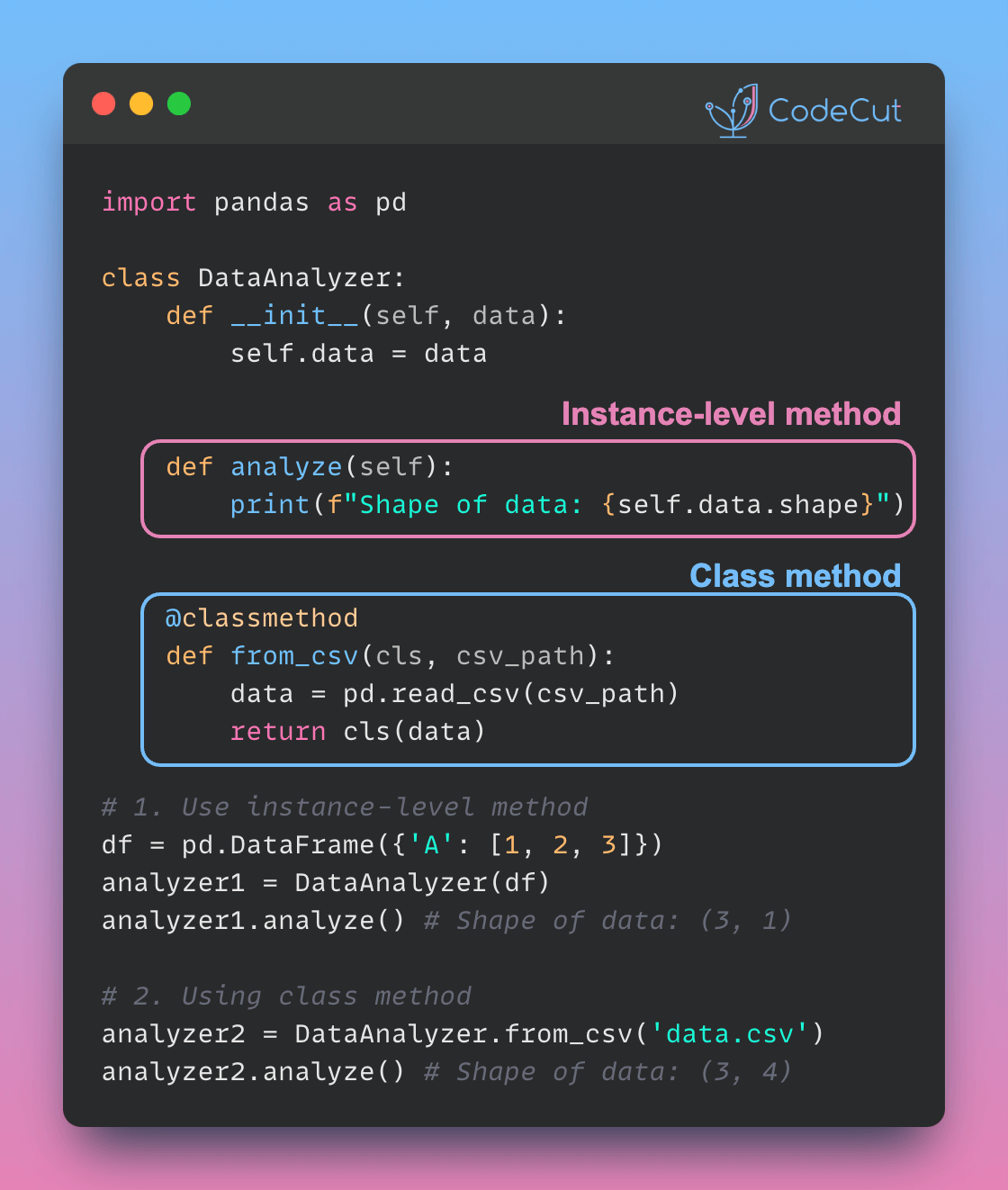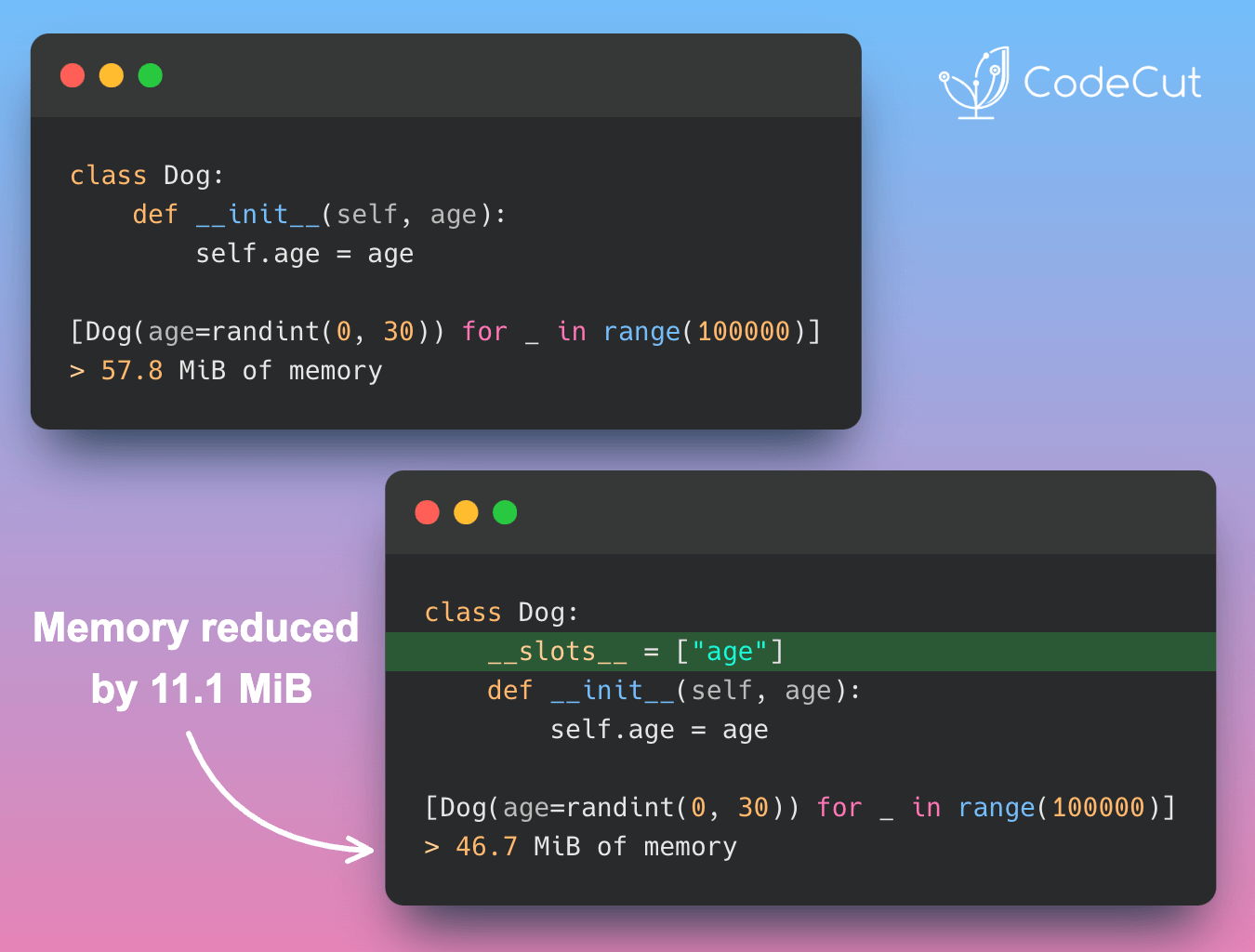Decorators are a powerful feature in Python that can help simplify code and improve maintainability. In this article, we will explore how decorators can be used to avoid duplicated code and make it easier to modify functionality across multiple functions.
The Problem: Duplicated Code
Let’s consider an example where we have two functions, add and multiply, which performs some calculations and also logs the execution time.
import time
def add(num1: int, num2: int):
"""Takes two integers and returns their sum."""
start = time.time()
print(f"Add {num1} and {num2}")
res = num1 + num2
end = time.time()
print(f'Elapsed time: {(end - start) * 1000:.3f}ms')
return res
def multiply(num1: int, num2: int):
"""Takes two integers and returns their product."""
start = time.time()
print(f"Multiply {num1} and {num2}")
res = num1 * num2
end = time.time()
print(f'Elapsed time: {(end - start) * 1000:.3f}ms')
return res
add(1, 2)
multiply(1, 2)Output:
Add 1 and 2
Elapsed time: 0.142ms
Multiply 1 and 2
Elapsed time: 0.006ms
2As we can see, the timing logic is duplicated in both functions. If we need to modify the timing logic, we would have to update it in both places, which can be time-consuming and error-prone.
The Solution: Decorators
Decorators can help us avoid duplicated code and make it easier to modify functionality across multiple functions.
Let’s define a decorator time_func that can be used to track the execution time of any function.
import time
def time_func(func):
def wrapper(*args, **kwargs):
start = time.time()
res = func(*args, **kwargs)
end = time.time()
print(f'Elapsed time: {(end - start) * 1000:.3f}ms')
return res
return wrapperHere’s a step-by-step explanation of the decorator:
time_functakes a functionfuncas an argument.- The inner
wrapperfunction handles any number of positional and keyword arguments. - It records the start time, calls the original function with the original arguments, and records the end time.
- The elapsed time is calculated and printed.
- The result of the original function is returned.
We can now apply the time_func decorator to our add and multiply functions.
@time_func
def add(num1: int, num2: int):
"""Takes two integers and returns their sum."""
print(f"Add {num1} and {num2}")
return num1 + num2
@time_func
def multiply(num1: int, num2: int):
"""Takes two integers and returns their product."""
print(f"Multiply {num1} and {num2}")
return num1 * num2
add(1, 2)
multiply(1, 2)Output:
Add 1 and 2
Elapsed time: 0.453ms
Multiply 1 and 2
Elapsed time: 0.007ms
2As we can see, the timing logic is now defined in one place, and we can easily modify it if needed.
Preserving Function Metadata
When we use the time_func decorator, it changes the function name and docstring. To preserve the original function metadata, we can use the wraps decorator from the functools module.
import time
from functools import wraps
def time_func_with_wraps(func):
@wraps(func)
def wrapper(*args, **kwargs):
start = time.time()
res = func(*args, **kwargs)
end = time.time()
print(f'Elapsed time: {(end - start) * 1000:.3f}ms')
return res
return wrapperWe can now apply the time_func_with_wraps decorator to our add and multiply functions.
@time_func_with_wraps
def add(num1: int, num2: int):
"""Takes two integers and returns their sum."""
print(f"Add {num1} and {num2}")
return num1 + num2
@time_func_with_wraps
def multiply(num1: int, num2: int):
"""Takes two integers and returns their product."""
print(f"Multiply {num1} and {num2}")
return num1 * num2
add(1, 2)
multiply(1, 2)Output:
Add 1 and 2
Elapsed time: 0.332ms
Multiply 1 and 2
Elapsed time: 0.008ms
2As we can see, the function name and docstring are now preserved.
print(f"Function name: {add.__name__}")
print(f"Docstring: {add.__doc__}")Output:
Function name: add
Docstring: Takes two integers and returns their sum.




